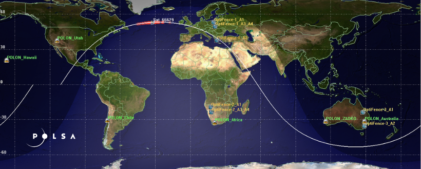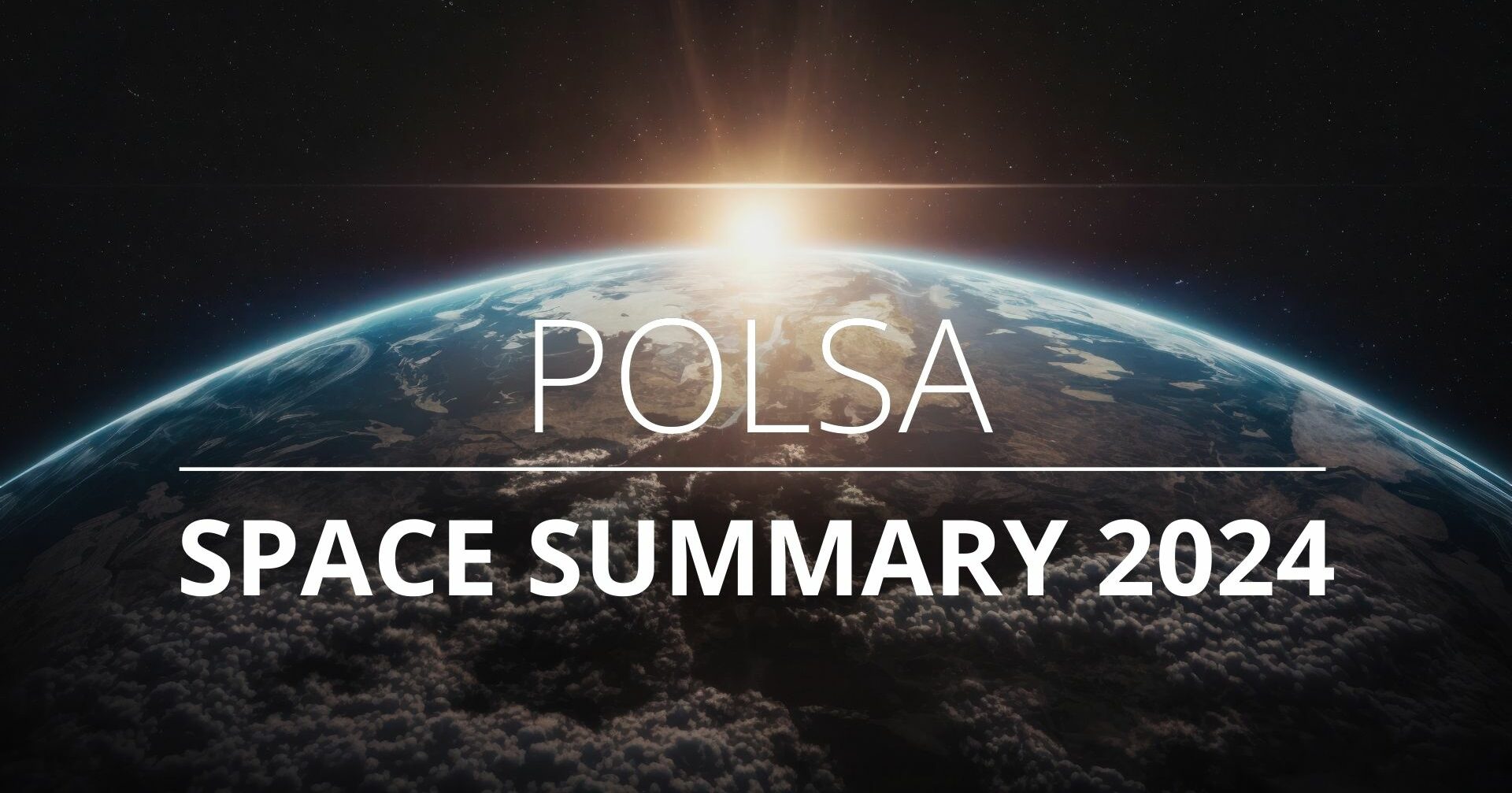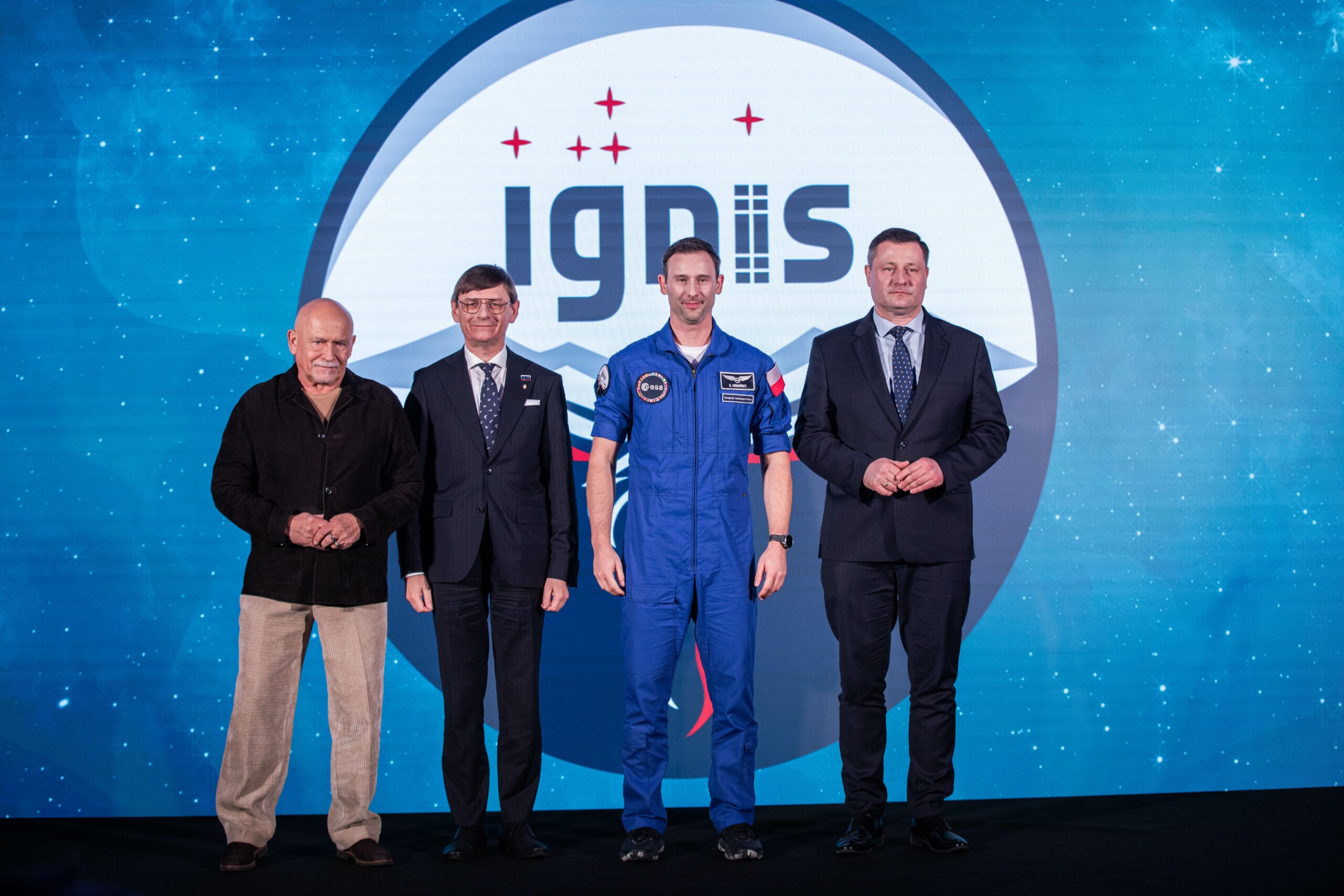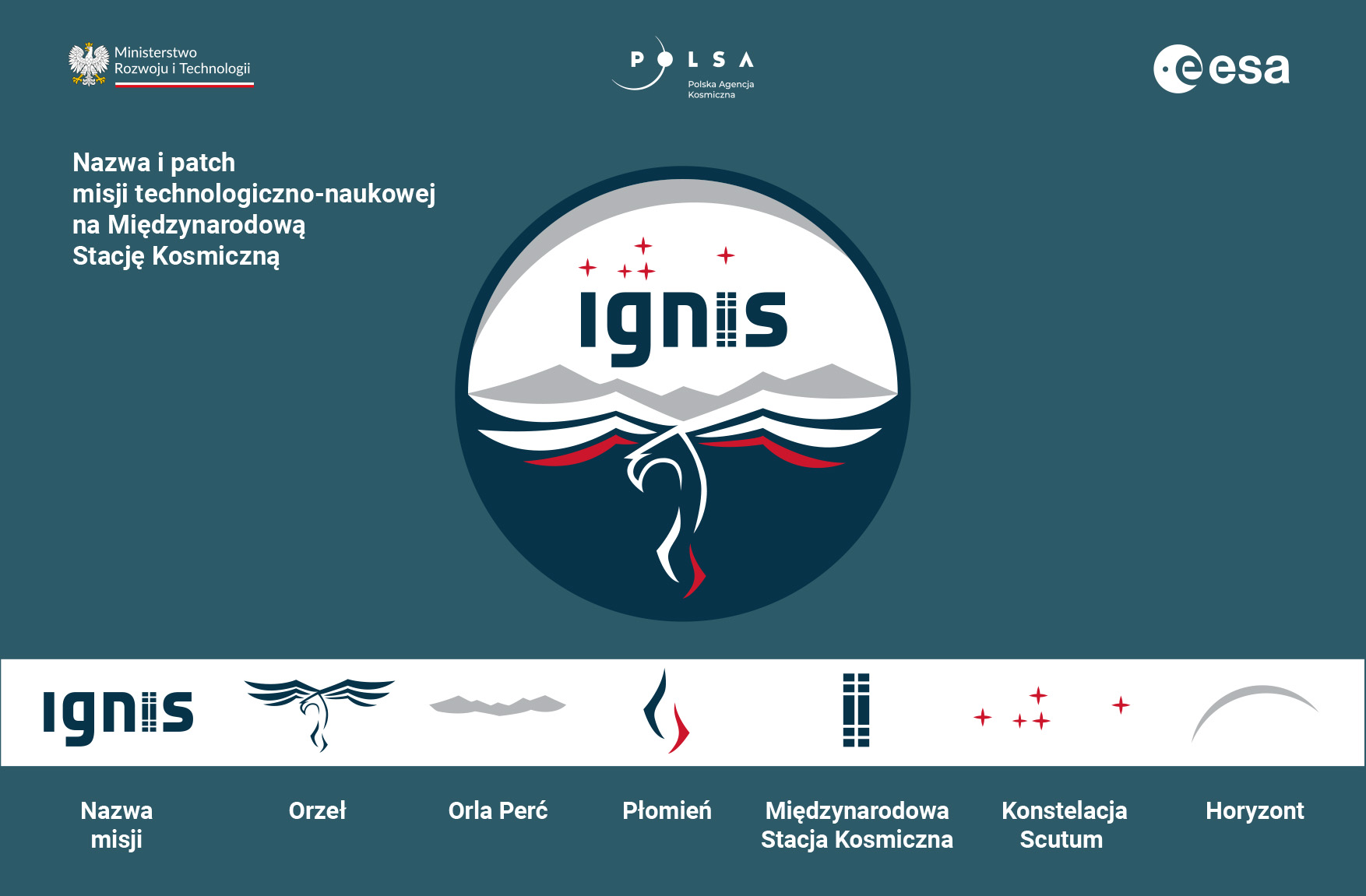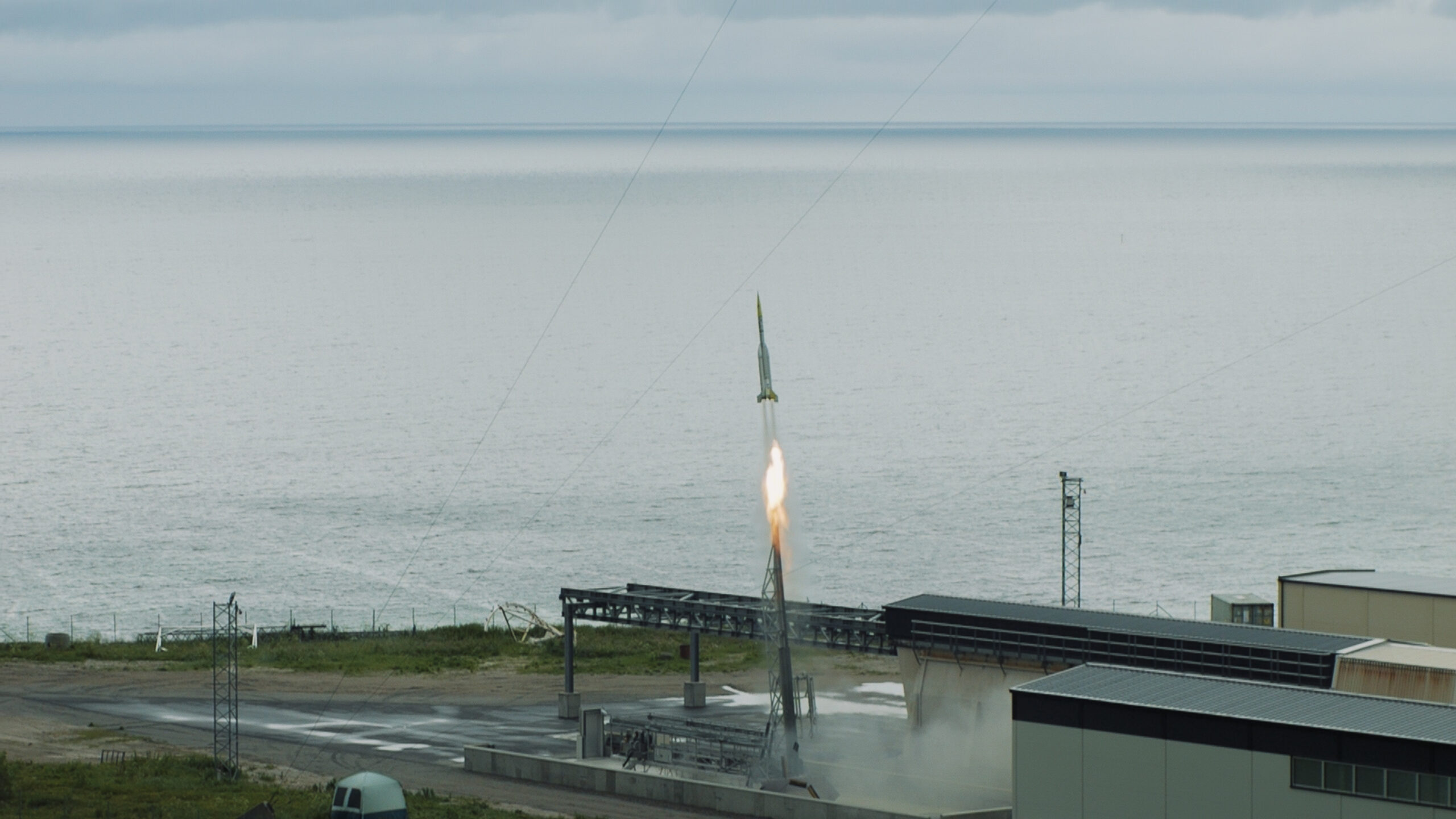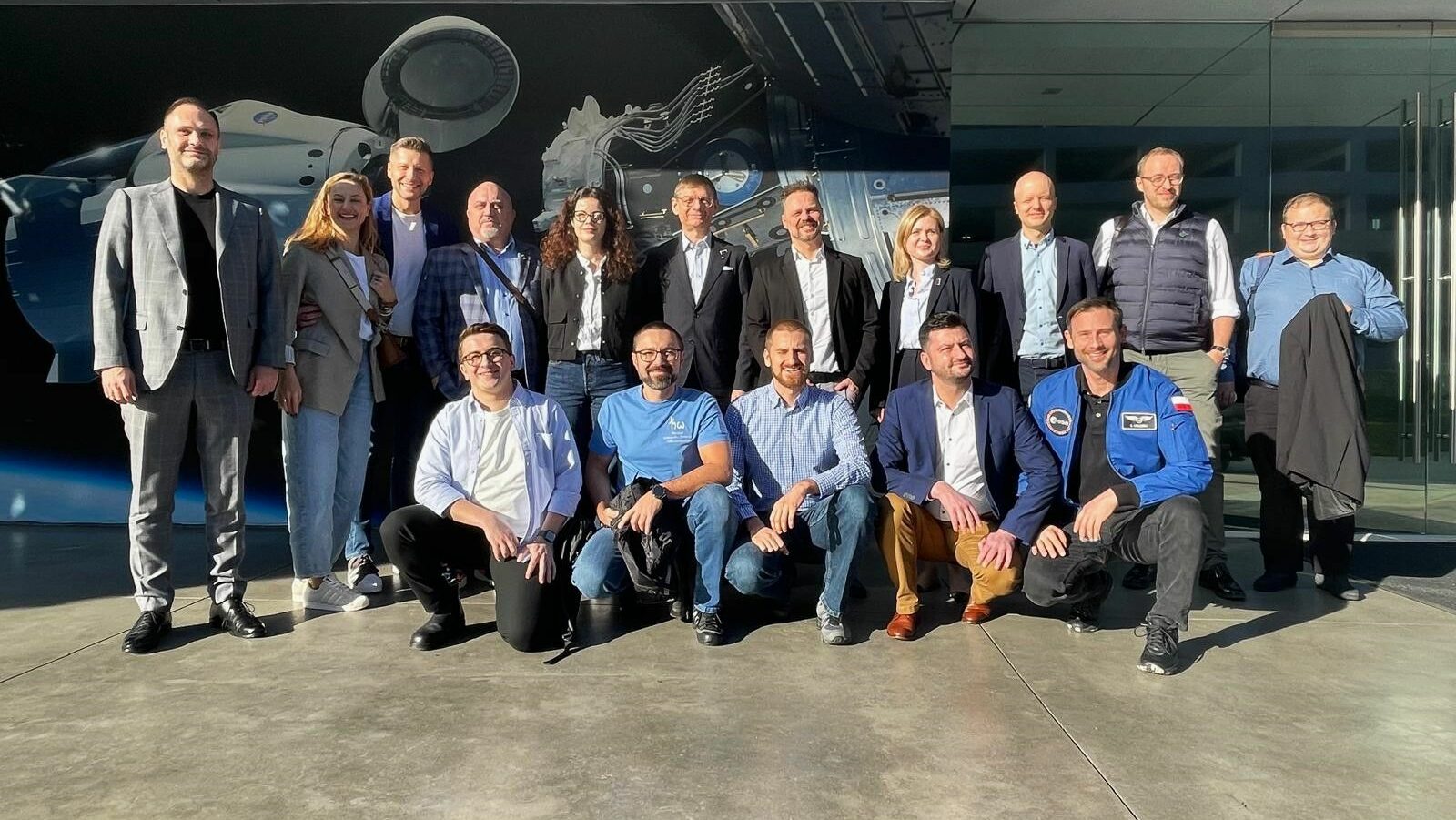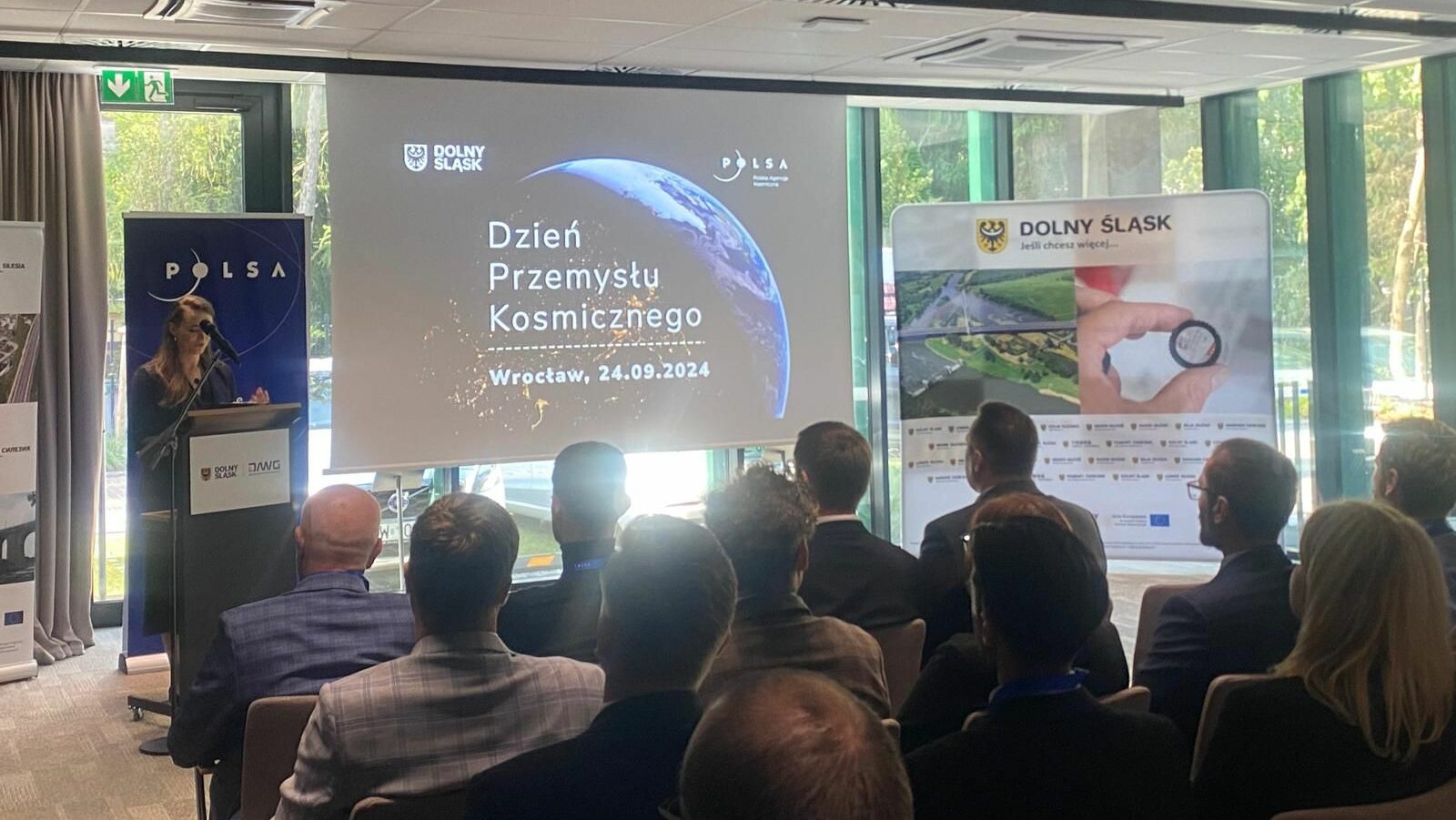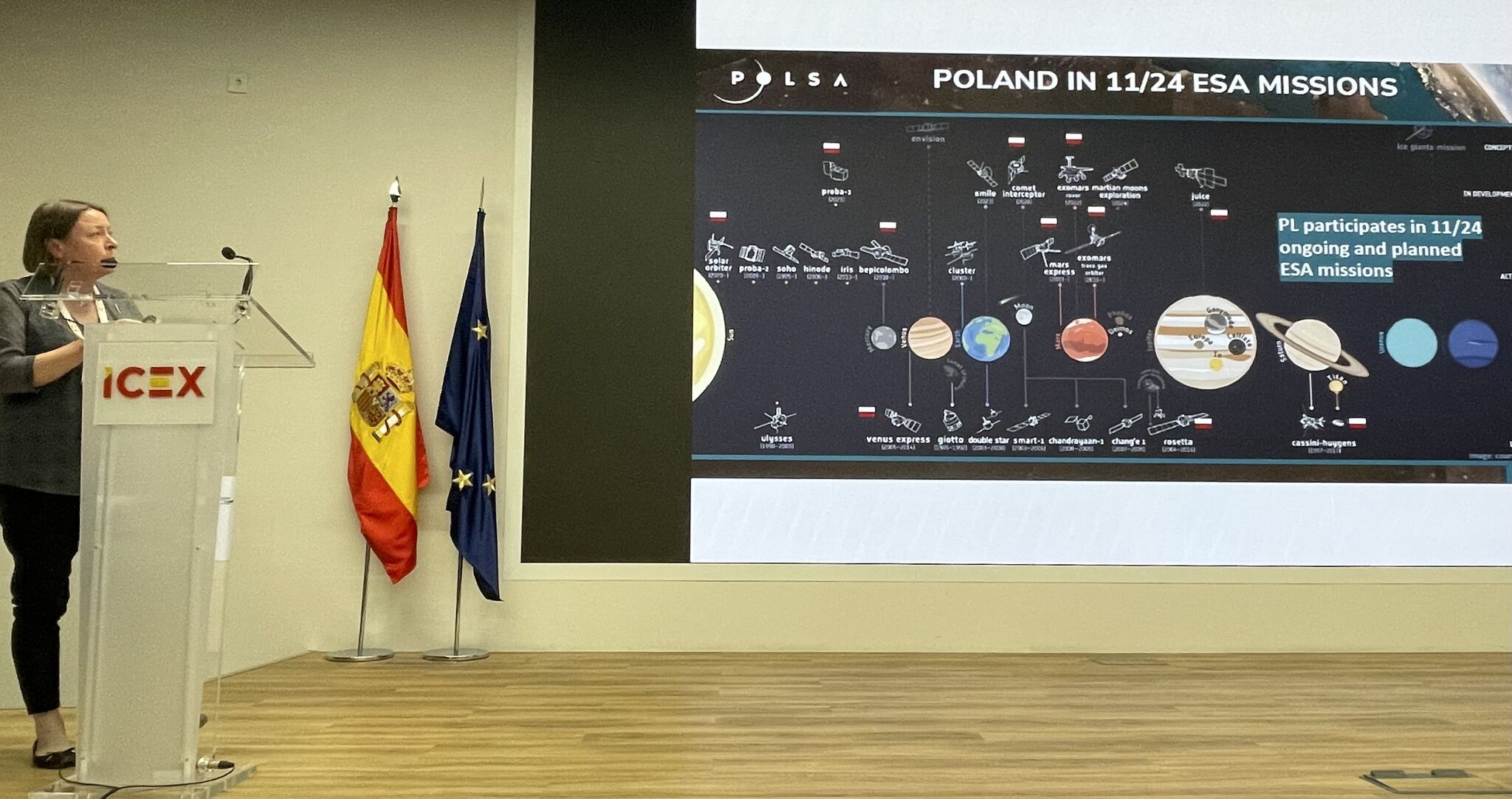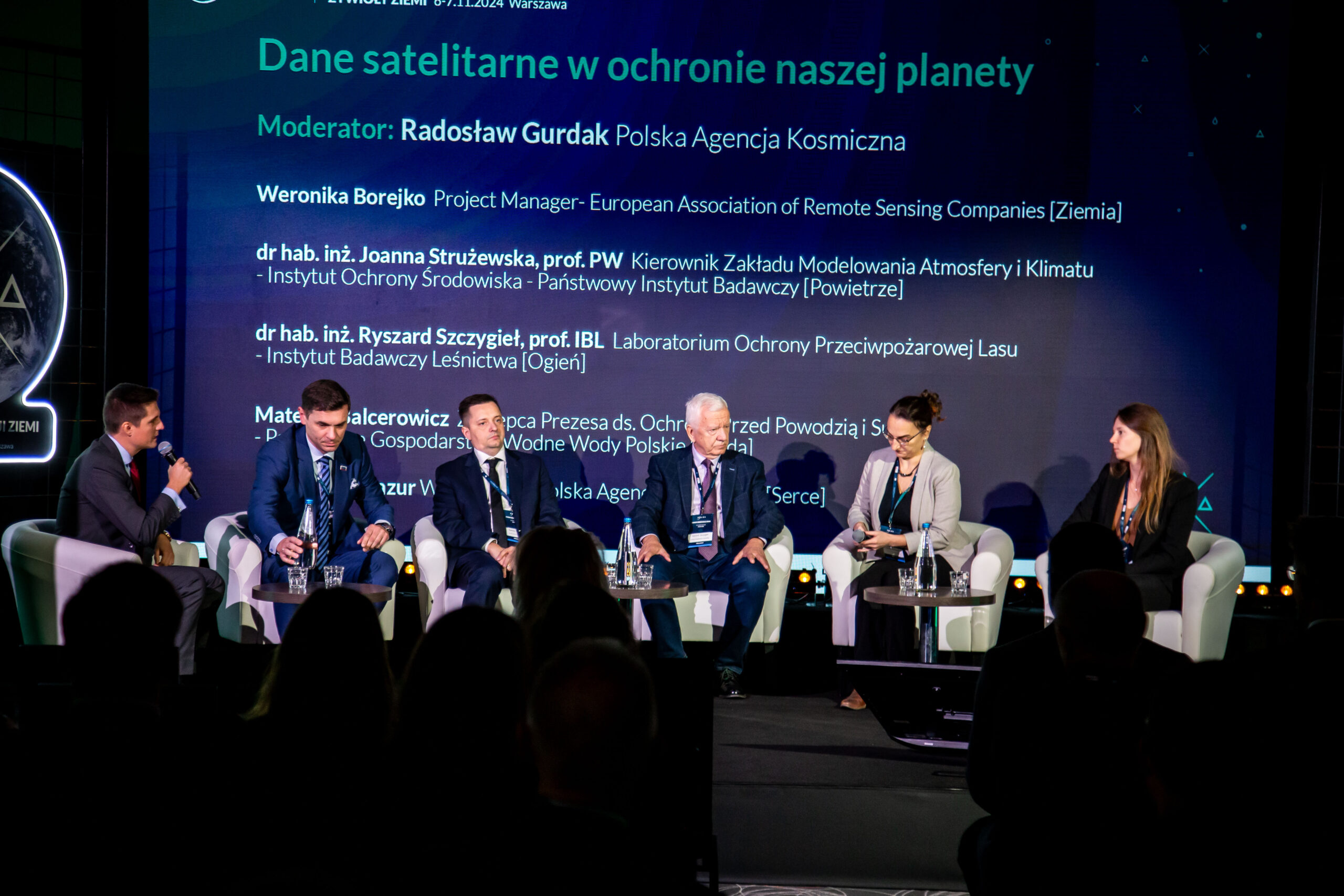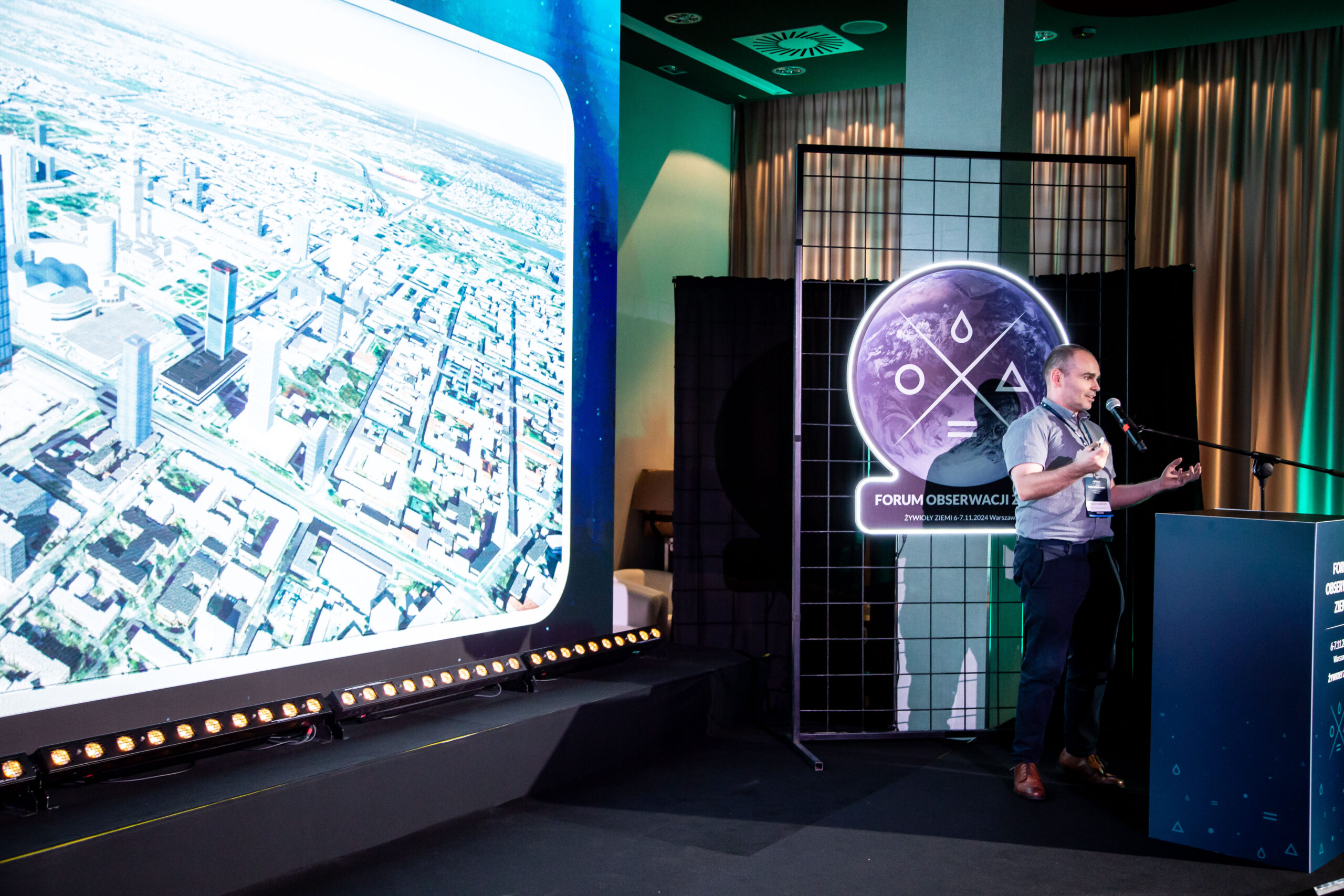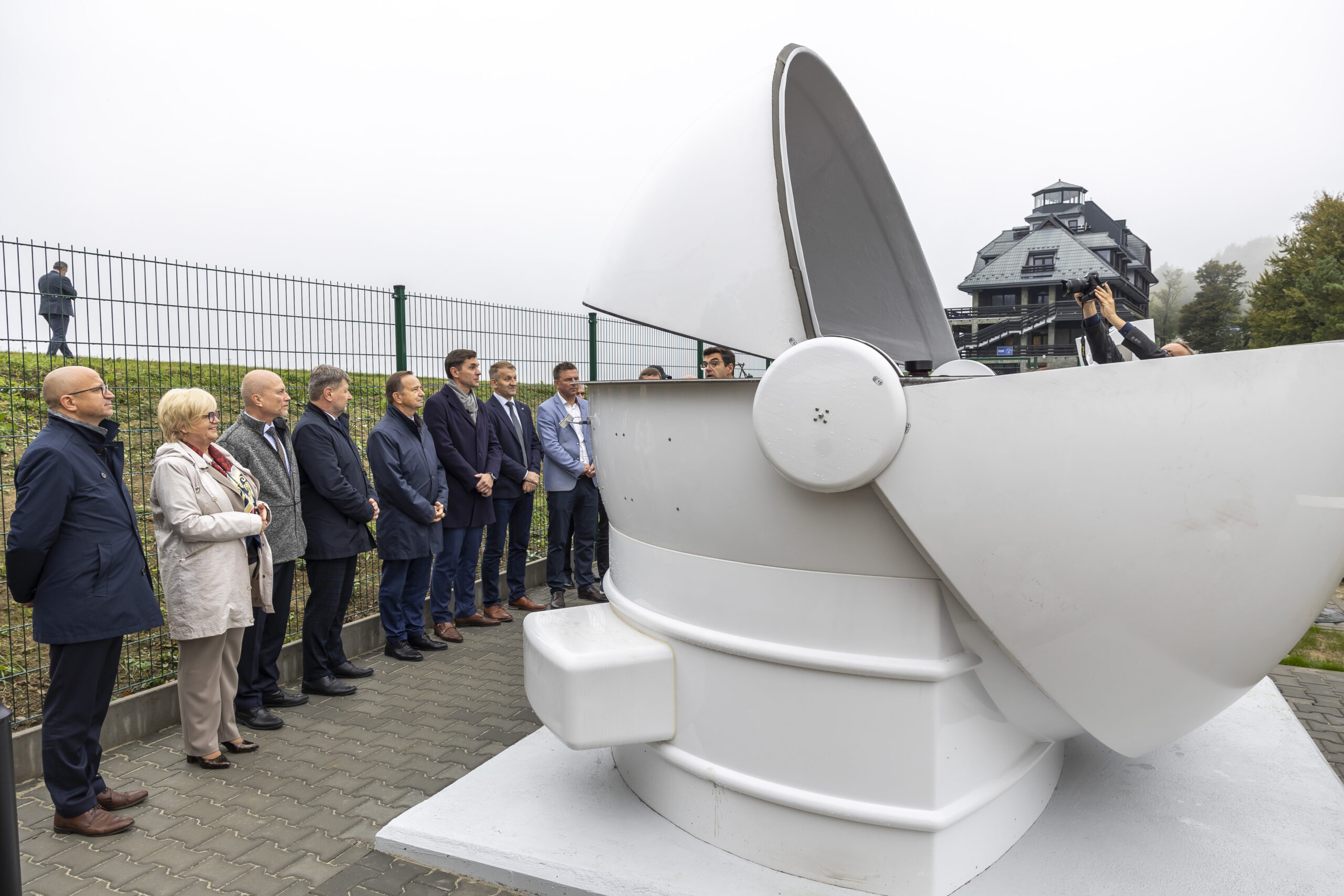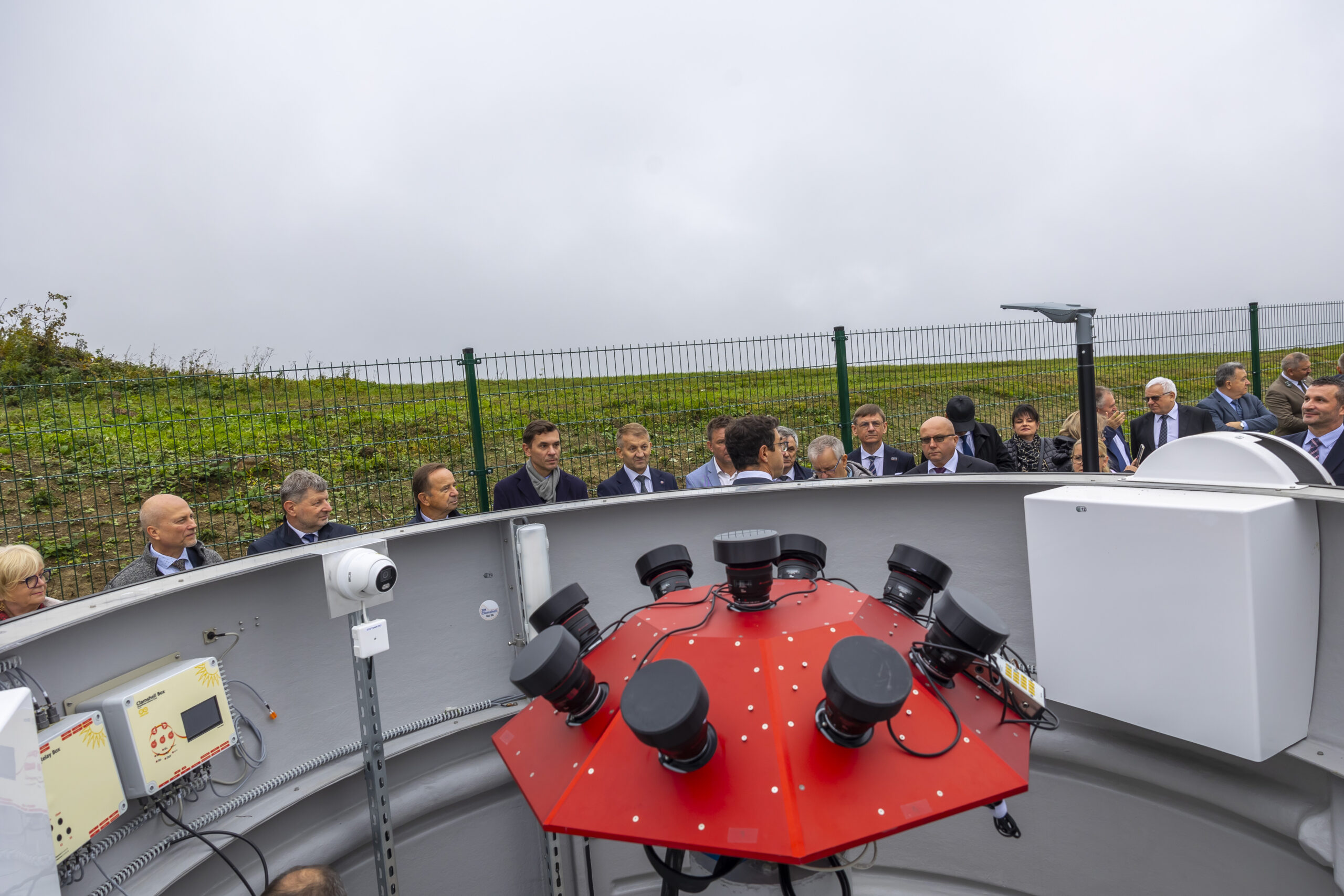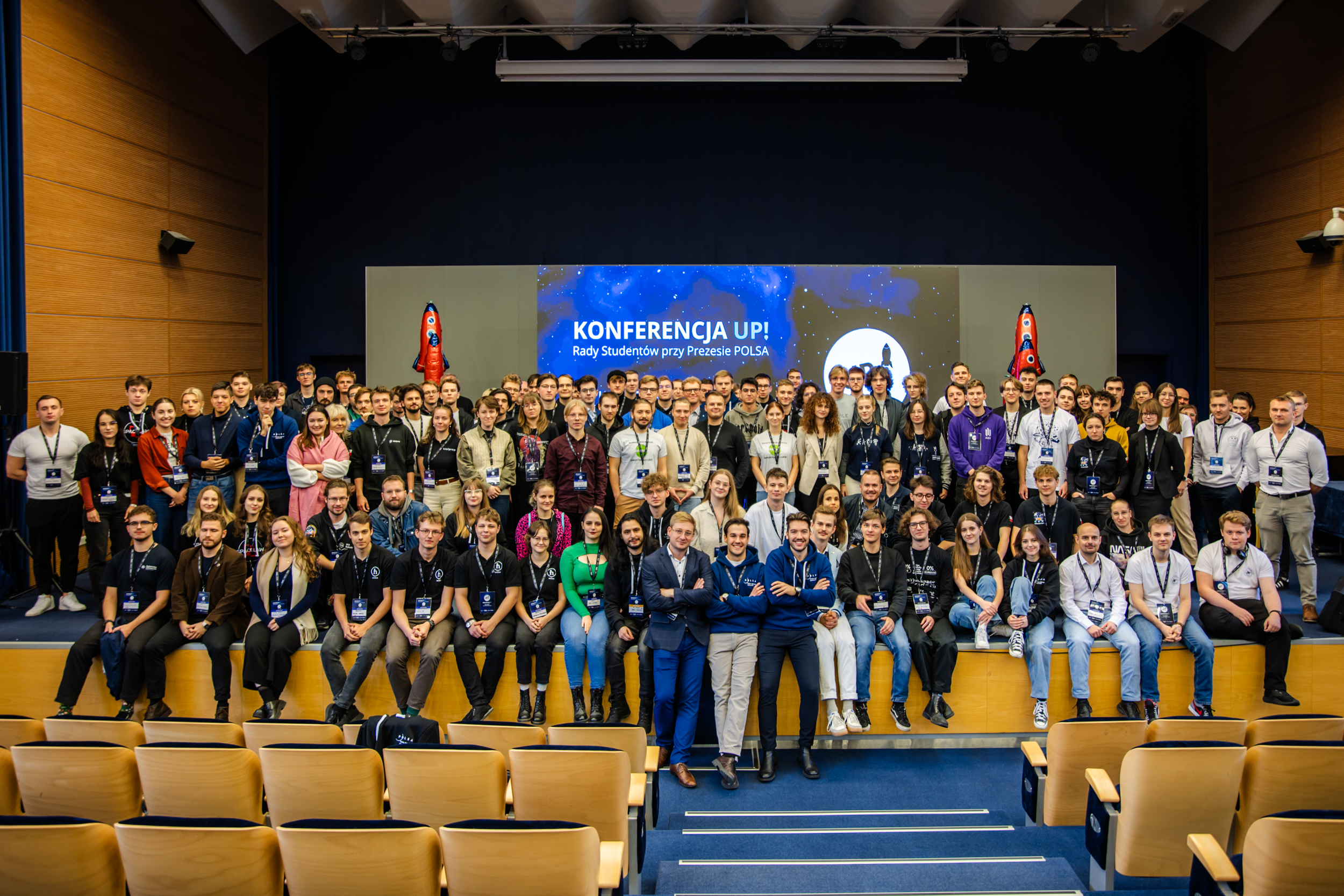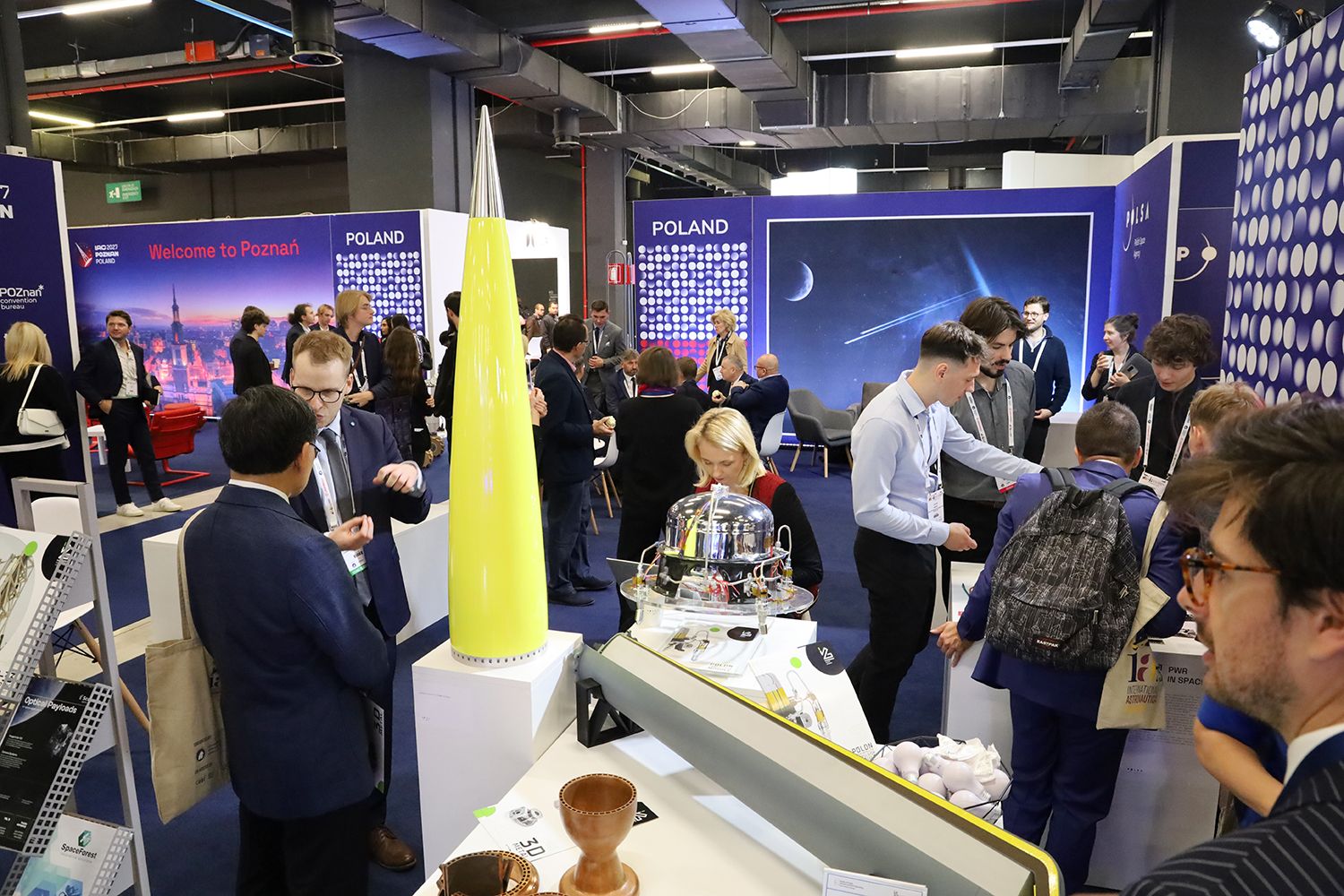The past year has been a time of intensive work and remarkable achievements for the Polish Space Agency, further strengthening Poland’s position in the international space sector. Our projects have fostered the development of innovative technologies, supported public administration, and promoted space science and education. It was also a year of reflecting on 10 years of the Polish Space Agency’s (POLSA’s) accomplishments—years that have brought tangible results through new partnerships, groundbreaking projects, and successes on both national and international stages.
Polish IGNIS mission to the ISS
In 2024, the details of Poland’s first technology and science mission, IGNIS, were unveiled. This groundbreaking project will mark the first Polish manned flight to the International Space Station (ISS) and the first Polish astronaut in space since Gen. Miroslaw Hermaszewski’s mission in 1978. Scheduled for 2025, the mission will feature Polish astronaut Dr. Slawosz Uznanski-Wisniewski, who will fly as a Project Astronaut of the European Space Agency (ESA). Beyond its symbolic significance, the IGNIS mission represents a major step forward for Poland’s space sector, offering opportunities for a wide range of scientific and technological research aboard the ISS. Additionally, the mission will have an educational component, aiming to inspire the next generation to explore and engage with space science and technology.
The IGNIS mission is set to conduct thirteen experiments developed by Polish scientific and industrial institutions. These studies will cover a range of fields, including materials engineering, biology, medicine, and advanced technologies. Among the selected experiments are investigations into the behavior of materials in microgravity, assessments of cosmic radiation effects on living organisms, and tests of innovative devices and methods with potential applications in future space missions. Each experiment is designed to deliver tangible contributions to the advancement of space science and technology.
Research and innovation
A key highlight of 2024 was the successful launch of the ILR-33 Amber 2K rocket, which reached space on July 3, 2024. Developed by engineers from the Łukasiewicz Institute of Aviation, the rocket earned international recognition for its innovation. POLSA provided both financial and organizational support for the project. This historic achievement marks a milestone for the Polish space industry, showcasing the expertise of Polish engineers and their ability to execute ambitious space initiatives.
Significant progress was also made in advancing Poland’s lunar exploration ambitions. In 2024, a tender was issued for a feasibility study for Phase A of a Polish orbital lunar mission, marking a major step toward achieving this ambitious goal. POLSA is serving as the integrator of space projects, with the formal and legal analysis of the mission scheduled for completion by December 2025.
Equally significant was the Polish space sector’s training visit to the United States, aimed at strengthening the strategic partnership established with NASA’s Jet Propulsion Laboratory (JPL) in 2022. As the leader in fostering cooperation between the Polish space sector and JPL, POLSA focused on conducting joint analyses to involve Polish companies and institutions in the execution of ambitious JPL/NASA missions.
Cooperation and development
As part of its involvement in the Artemis Accords, which had 52 signatory countries by the end of 2024 (including Liechtenstein, which joined on December 23, 2024), POLSA took on the task of developing and managing a repository of ongoing and planned lunar missions. In 2024, a demonstration version of the repository was created, featuring data from NASA, JAXA, and ISRO missions. Plans for 2025 include upgrading the repository to a fully operational version, enabling more automated data exchange. With over 50 lunar missions planned in the coming decade, this repository will play a crucial role in coordinating activities and ensuring transparency for operations both in orbit and on the lunar surface.
The agency also hosted the Wrocław 2024 Space Industry Day on September 24 at the triQube Business Incubator. The event aimed to showcase Polish achievements in the space sector, highlighting innovations in industry and research. It brought together representatives from the space industry, scientific institutions, and companies from Lower Silesia. Key topics included updates to the Polish Space Strategy, the draft Polish National Space Program, and discussions on bilateral agreements with ESA, as well as cooperation programs.
POLSA also organized the workshop “How to Write Good Proposals in Response to an ESA Invitation to Tender for R&D Activities,” held in Rzeszów, April 23-26, 2024. Additionally, a workshop with the EUMETSAT organization took place in early September, attracting significant participation from Polish companies. Another notable event was a workshop held on December 10, 2024, in Warsaw, focusing on opportunities for collaboration between Polish space sector entities and The European Union Agency for the Space Programme (EUSPA) National Center for Research and Development, particularly within Horizon Europe projects.
POLSA also organized a national space sector mission to Spain from June 17–21, 2024. During the visit, participants engaged in numerous meetings with representatives of the Spanish space industry in Madrid and Bilbao, fostering collaboration and exploring opportunities for partnership.
Earth Observation
In 2024, POLSA continued to enhance the National Satellite Information System (NSIS) by introducing new functionalities. These included urban heat island analyses for 24 cities, monitoring of wooded areas, high-resolution orthophotos, and 2024 Land Cover Maps. These advancements provided substantial support to public administration in areas such as emergency management, environmental protection, and urban planning. Additionally, as part of the CAMILA project, POLSA collaborated with ESA, delivering key user requirements documents that served as the foundation for defining mission specifications.
As part of the satellite Earth observation project CAMILA (Country Awareness Mission in Land Analysis), POLSA played a key role in defining user and mission requirements, providing essential technical support. Notably, POLSA developed the User Requirements Document, which served as the foundation for ESA’s refinement of mission specifications.
POLSA also hosted the 2024 edition of the Earth Observation Forum, themed 'Earth Elements,’ which gathered experts in satellite technology and data analysis. Additionally, to support public administration, POLSA provided training to over 100 employees of public institutions, conducted specialized sessions for police personnel, and maintained ongoing collaboration with prosecutors at various levels.
Telecommunications and Satellite Navigation
The year 2024 was a dynamic period for satellite telecommunications and navigation projects. POLSA enhanced its expertise through participation in the GOVSATCOM, Secure Connectivity, and HUMMINGSAT programs, contributing to the development of independent and secure satellite communication systems. Notably, significant progress was made on the broadband telecommunications transponder project, further strengthening Poland’s technological capabilities.
The conference 'Satellite Technologies in Emergency Management’ attracted numerous participants from both Poland and abroad. It served as a platform for sharing experiences and best practices, emphasizing the importance of investments in orbital and terrestrial infrastructure. The event was honored by the presence of Deputy Prime Minister and Minister of Digitization Krzysztof Gawkowski, as well as Rodrigo da Costa, Director General of the European Union Agency for the Space Programme (EUSPA).
POLSA also initiated cooperation with the Space Technology Park (PTK) in Zielona Góra, focusing on creating favorable conditions for the development of satellite systems and the implementation of services under European Union programs such as Copernicus, Galileo, and GOVSATCOM. As part of this collaboration, plans include the establishment of a laboratory at PTK, which will be integrated into the National Satellite Information System (NSIS).
Space Security
In the area of space security, POLSA successfully completed several key projects. The POLON telescope network was expanded with two new locations in Utah and Hawaii. The first commissioned Automated Telescope Array was installed at the Utah Desert Remote Observatories center, while another identical set of optical equipment was deployed on Moloka’i Island in the Hawaiian archipelago. These advancements have significantly strengthened Poland’s space monitoring capabilities within the European SST consortium.
Another significant milestone in Poland’s contribution to space security was the inauguration of the Observation Center in Bezmiechowa, located at the Academic Glider Center of the Rzeszow University of Technology. The center is equipped with state-of-the-art OPTICAL FENCE and ASOPEK sensors, enabling advanced orbital observations. In addition to its research capabilities, the facility serves as a training site for future space security specialists. Moreover, POLSA reinforced its commitment to safeguarding orbital infrastructure by producing nearly 200 reports warning of potential satellite collisions.
Education, popularization and promotion of space topics
POLSA supported nearly 60 educational and cultural events targeting diverse audiences, including children, youth, students, and adults. These activities featured workshops, internships, competitions promoting space exploration, and space photography exhibitions. Notably, initiatives conducted in collaboration with the European Space Agency (ESA), such as the ESA National Trainee Program, garnered significant interest by providing young people with opportunities to gain hands-on experience in international space projects.
The agency also won the Polish Public Relations community’s “Zloty Spinacz” award for its campaign promoting the flight of the ILR-33 Bursztyn 2K rocket, which helped raise the profile of the Polish space sector.
POLSA actively participated in key fairs and conferences in 2024, including the International Astronautical Congress (IAC) in Milan, ESA’s Industry Space Days in Noordwijk, EuroGEO, and Space Tech Expo in Bremen, showcasing Polish technologies and achievements. A significant milestone was Poland being selected to host the International Astronautical Congress (IAC) 2027 in Poznań, highlighting the country’s increasing prominence in the global space sector.
Comments from the President of the Polish Space Agency, Prof. Grzegorz Wrochna

| The year 2024 was marked by hard work and significant achievements for the Polish space sector. Preparations for the IGNIS mission, the success of the Amber 2K rocket, numerous international collaborations—including with NASA’s Jet Propulsion Laboratory (JPL)—the expansion of the POLON telescope network with two new locations, and the awarding of the prestigious International Astronautical Congress (IAC) 2027 to Poznań, all demonstrate that Poland is poised to play an increasingly important role in the global space industry. These accomplishments are the result of the dedication and ingenuity of Polish scientists and engineers, as well as the unwavering commitment of our team at POLSA. I am confident that the foundations laid in 2024 will pave the way for even more ambitious projects in the years to come. |







 Wróć
Wróć
